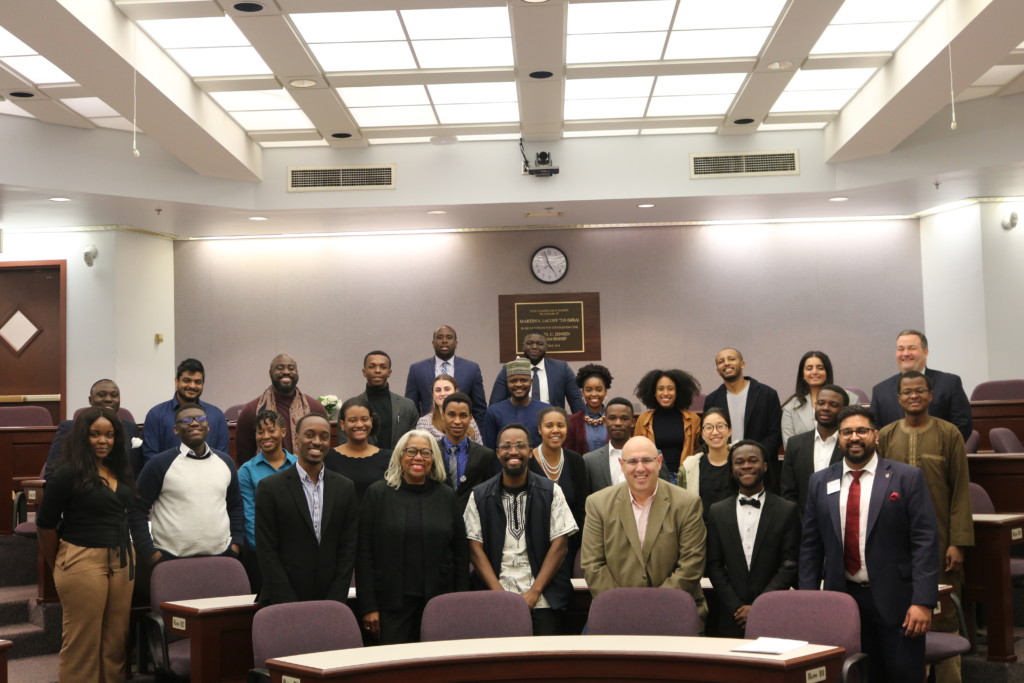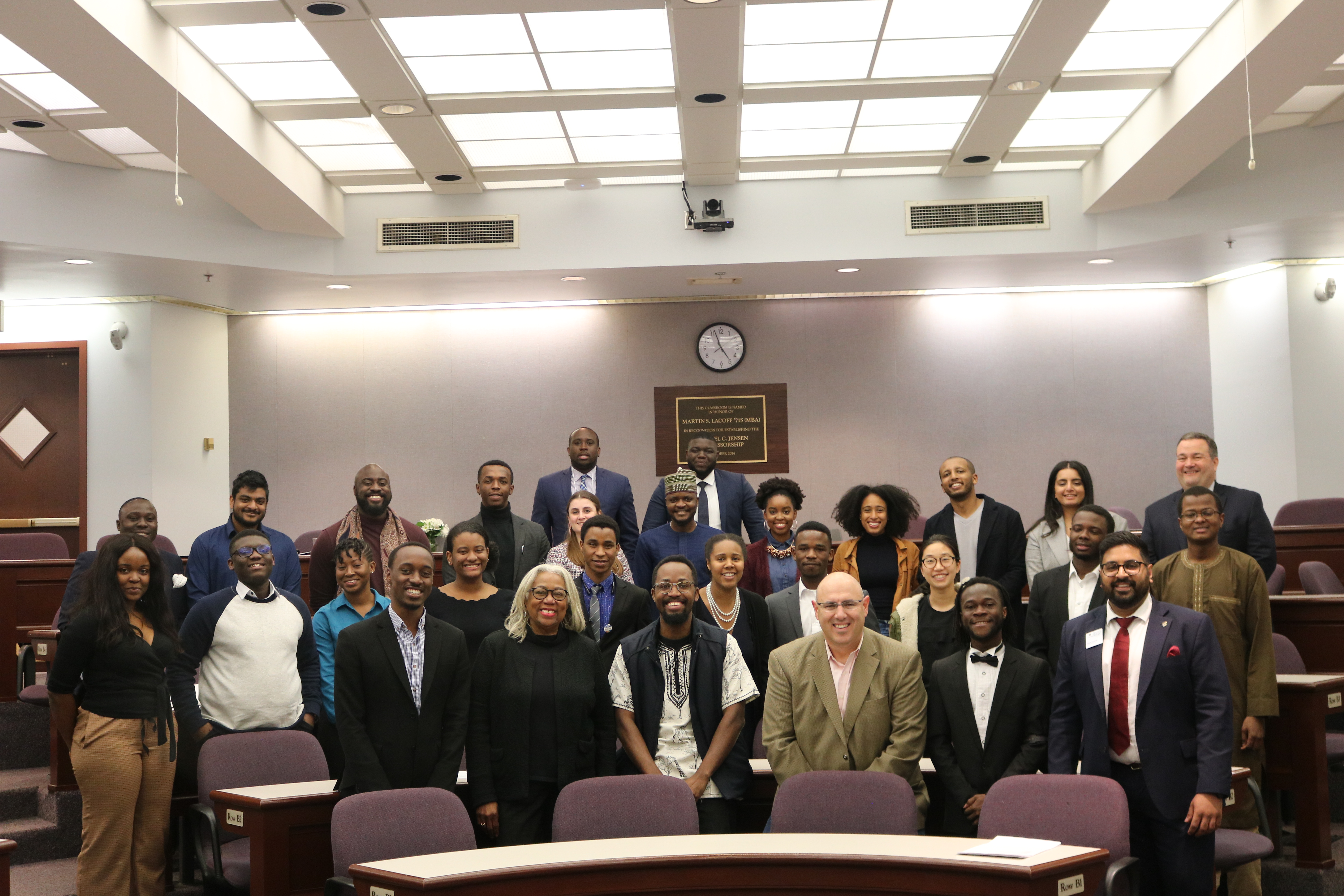Undergraduates, business students, and professionals from UR and RIT gathered on Saturday at the second annual Rochester Africa Business Conference for an afternoon of talks, panel discussions, and an entrepreneurial pitch competition.
The conference, titled “Africa, the Next Frontier,” was jointly organized by the Pan-African Students Association (PASA) and the Simon Africa Business Club. The focus was on empowering African businesses and their leaders while raising awareness of the continent’s economic potential.
“It’s the right time to be having conversations like this,” said keynote speaker and CEO of DreamAfrica Consulting Brian Asingia.
Asingia went on to note the importance of discourse between students eager to make an impact in the world of business and seasoned professionals in the field.
“I think oftentimes we have the answers, but our different groups are not interacting,” he said.
Throughout, speakers and panelists recounted stories of success, failure, and the lessons learned in their own business ventures. Daphne Pariser, founder and president of Humans for Education, recounted a mistake she made early in her career.
“When I first started out it was just me all by myself, and I was like, ‘I just need people to come help,’” she said. “And that was a disaster! You don’t want to just hire [anybody],” she said.
The formal conference closed with an address by Kate Washington, the CEO of OWN Rochester. She spoke on the need for coordination between public and private sectors when seeking to make impactful economic changes.
A subsequent networking session allowed students and speakers to connect and reflect on the various presentations.
Junior and conference emcee Emmanuel Gweamee was particularly moved by the emphasis placed on storytelling.
“The international media has presented Africa in a certain light; it’s time to own our story,” Gweamee said. “It’s true that there’s poverty and disease on the continent, but these are things that happen everywhere. There are narratives [of development] that are being left out.”
Students were not the only ones who noted substantial takeaways from the conference.
“I think the younger people are actually readier than I thought, which is really inspiring,” Asingia said. “The will and the mindset is there. There is the intent to do something for Africa. It’s not even a question.”
As the conference came to its final moments, Cameron Shaw, a key organizer in the event and graduate student at the Simon Business School, was already looking to the future.
“I’m thinking about next year and how we’re going to keep this going,” she said. “The big thing for me is making sure the partnerships are strengthened.”


